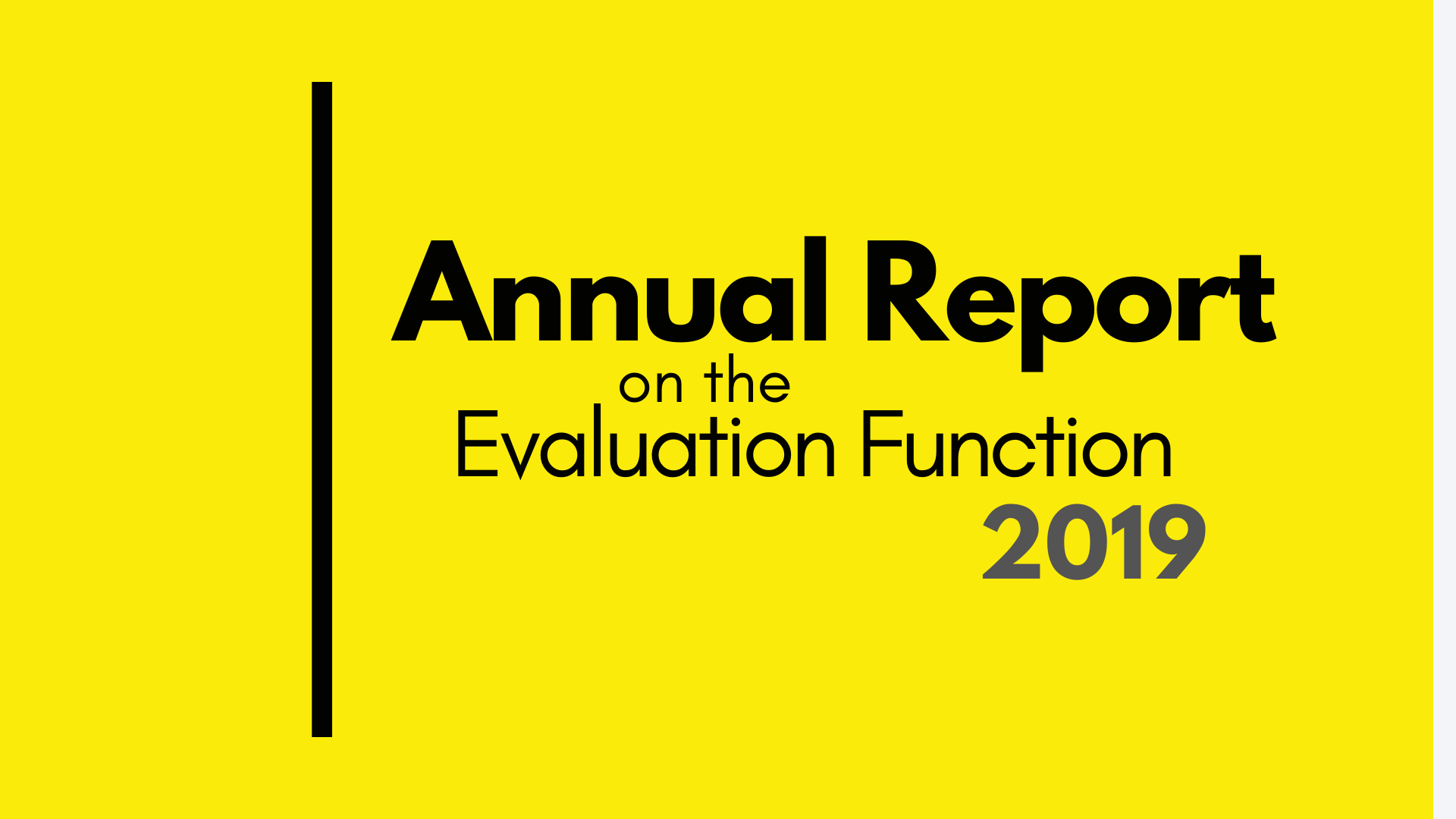The 2019 Annual Report on the evaluation function captures the performance of UNFPA evaluation at centralized and decentralized levels, highlighting the main progress and areas for growth. It highlights the contribution of the evaluation function at UNFPA to accelerate the delivery of the SDGs during the Decade of Action, including through strengthening UN coherence in evaluation, system-wide evaluations, and multi-stakeholder engagement for national evaluation capacity development.
In 2019, the Office continued to intensify efforts to support the UN reform process. By working closely with the United Nations Evaluation Group (UNEG), the Office provided support in the development of the United Nations funding compact, the revised guidance for the United Nations Sustainable Development Cooperation Framework (UNSDCF), and the revised policy for system-wide evaluations. Further, following its commitment to the UN reform process, in 2019-2020 about 50 per cent of all centralized evaluations at UNFPA continue to be joint or system-wide evaluations. The Evaluation Office also continued its close collaboration with Inter-Agency Humanitarian Evaluation (IAHE) steering group in 2019.
The Evaluation Office took concrete steps to increase accessibility and utility of evaluative knowledge, with the roll out of the strategy to enhance evaluation use through communications and knowledge management, 2018-2021. The strategy focuses on increased engagement with stakeholders and effective communication of evaluation results to targeted decision-makers in a timely manner. Further, in time for the Nairobi Summit, the Office released ‘Getting to zero’, a meta-synthesis distilling good practices and lessons from 57 UNFPA country programme evaluations.
The Annual Report notes that 100% of centralized evaluations in 2019-2020 were completed or are on track for completion as scheduled. This is also the third year that the Evaluation Office is reporting around a set of key performance indicators for the evaluation function. Out of nine key performance indicators, in 2019, four have achieved their targets, three are on track, and two require improvement.
In 2019, the Evaluation Office continued to focus on national evaluation capacity development through active engagement in multi-stakeholder partnerships, including prioritizing the capacity development of youth in evaluation. Together with the EvalYouth Global Network and Global Parliamentarians Forum on Evaluation, the Office launched the ‘Decade of EVALUATION for Action’ or the Eval4Action campaign. In alignment with and support to, UN Secretary-General’s Decade of Action campaign, Eval4Action advocates for stronger national evaluation capacities to accelerate the delivery of SDGs by 2030.
Related document
